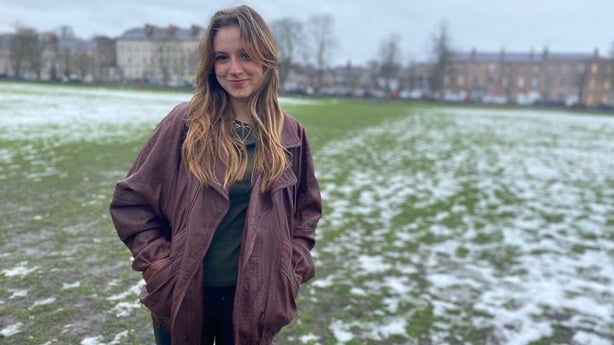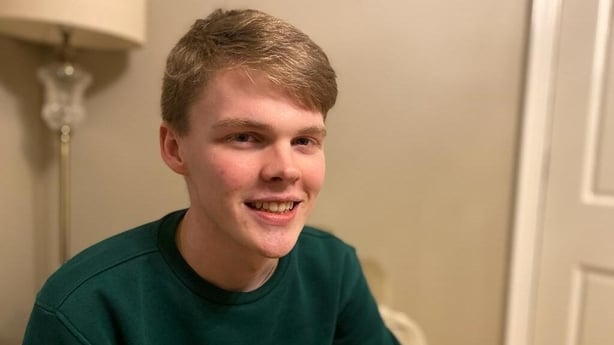After decades of violence, young people in Northern Ireland are growing up in the sort of peace their parents could only have dreamed of. But with Stormont on ice yet again, there is debate about whether the Good Friday Agreement has delivered for the current generation.
Despite the uncertainty, some young people are moving their communities forward.
20-year-old Inez Murray set up the Crisis Café in Newry with some friends. The aim was to create a space for young people to connect, and access counselling in an informal environment if they needed it.
"Politicians and community leaders need to look to places like this, and see what they're doing and learn from that," she said.
"The mental health need, especially in places like Newry, is so, so high. Young people need this support, but they can't really access it through statutory services. The waiting lists are just too long and it is really a matter of life and death for some people.
"There's the impact of being in a post conflict society and intergenerational trauma, but I think more than that, young people just feel left behind in Northern Ireland. I feel like the services just aren't catching up with the need that's here, and this is why charities and organisations like Crisis Café have to step in and provide that support."
We need your consent to load this rte-player contentWe use rte-player to manage extra content that can set cookies on your device and collect data about your activity. Please review their details and accept them to load the content.Manage Preferences
Fionntan Gregory, who is also 20 years old, believes every generation faces its own particular issues.
"I think one of the most up and coming things at the minute is acceptance and things like the queer community and the LGBTQ+ community," he said.
"There has been more talk around mental health. There's so much stress, and especially with the pandemic recently in schools, it's been seen there. I think that we're more aware that we need mental health help, but it's difficult to see where we can get that from."
Dara Doyle, 19, who also attends the café, said it is a good example of young people working on solutions from the ground up.
"There are grassroots organisations that are coming at a very, very low level and you know, making those interventions for young people, directly where they need it, how they need it. And then the hope is that it trickles up to politicians, to Stormont, to policy that will help young people."
In Armagh city, 16-year-old Zoe O’Hare has recently returned from a trip to Geneva.

She was part of a delegation from Northern Ireland giving evidence to the UN Committee on the Rights of the Child and spoke about living in a post-conflict society.
"The Good Friday Agreement, of course it's a peace agreement. However, the general kind of feeling is that it's a tense and dysfunctional peace. It appears it was more or less designed so that Irish nationalists and British unionists could just about exist with each other, but not actually live side by side.
"So, I think it would be great for there to be programmes, or at least a general drive, to separate future generations from the divisions of the old. Through inclusive, non-discriminatory education and non-segregated education. I feel as I and other young people grow up, we want our society to grow up as well."
18-year-old youth worker Eoin McGlinchey lives in the Sperrin Mountains in rural Tyrone. Like Zoe, he thinks a more integrated society will progress things for his generation.

"I think segregation looks different here in rural areas. It does exist. You'll have a Catholic village, and a few miles down the road, it could be a Protestant village. My ward is 98% Catholic."
"We're not having open and honest conversations with other young people from different backgrounds. If we’re going to talk about a new Ireland, it’s going to have to include everyone and the concerns and wants of everyone is going to have to be factored in.
"We'll have to look at integrating our spaces in this country, particularly schools over a gradual basis, over time."
Despite the divisions that persist in Northern Irish society, Eoin is hopeful about the future.
"I'm excited. I'll be able to vote for the first time in May, which is always a big thing. It might just be the youthful spirit in me, but I’m optimistic."







